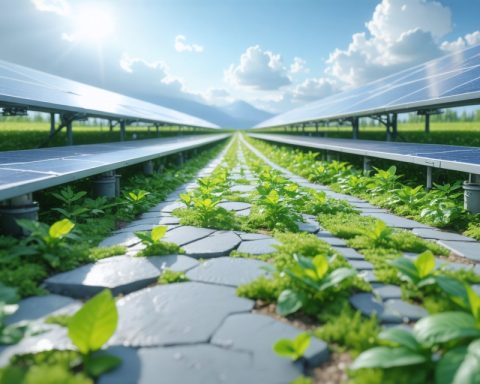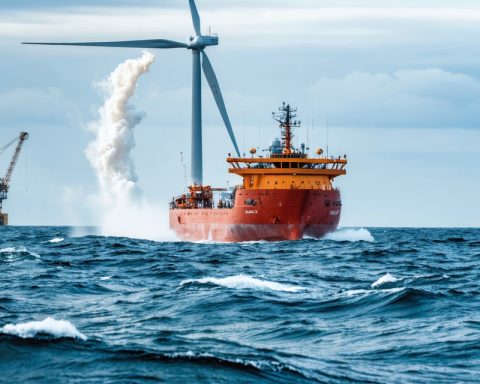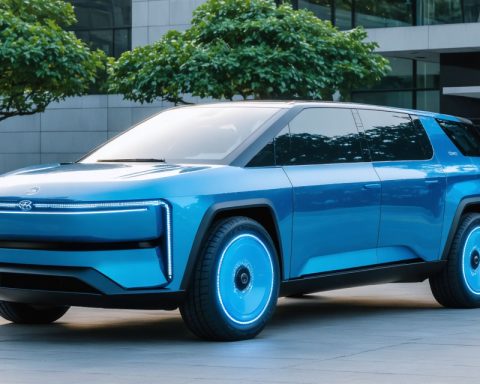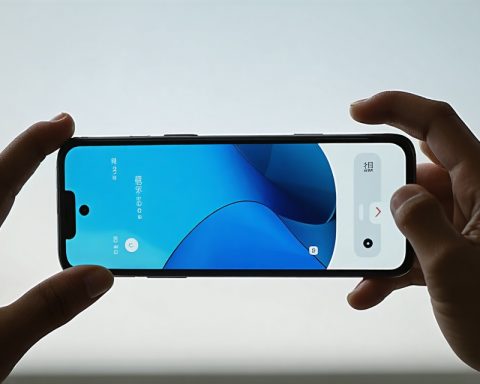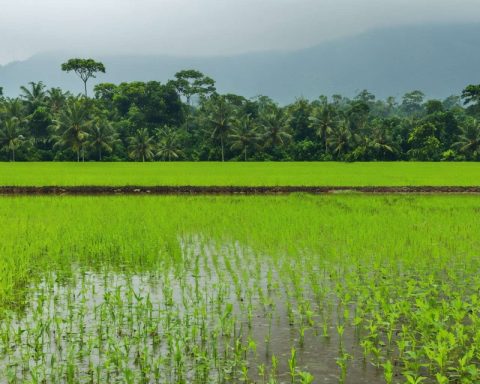- Indonesia joins the New Development Bank (NDB) under the BRICS, fostering a pathway toward a sustainable economy.
- Aligning with NDB supports Indonesia’s goals to reduce carbon emissions and expand renewable energy.
- The partnership offers financial latitude, alleviating pressure on public finances and supporting low-carbon goals.
- Diversified funding sources empower Indonesia to negotiate favorable development terms.
- Indonesia gains influence in shaping NDB’s sustainable development finance agenda.
- Collaboration with BRICS members promotes sustainable financing practices and green ventures.
- Indonesia ensures NDB projects meet high environmental and social standards through stringent oversight.
- The focus remains on clean technology and innovative green solutions, such as battery storage and carbon capture.
- Strategic engagement with NDB enables Indonesia to further green industrial objectives and economic growth.
- Indonesia’s participation signals commitment to advancing policy, financial prudence, and environmental stewardship.
With vibrant archipelagos and emerald forests serving as a rich tapestry, Indonesia embarks on a transformative journey toward a sustainable economy. The country has made the strategic choice to embrace the New Development Bank (NDB) under the BRICS framework, a decision brimming with promise as it addresses pressing questions about sustainable financing. As Indonesia joins the ranks of this formidable multilateral bank, new avenues unfold to fuel its green industrial ambitions.
In the pulsating heart of Southeast Asia, Indonesia boldly sets ambitious targets to curtail carbon emissions and invigorate its renewable energy endeavors. Yet, financing this eco-friendly metamorphosis remains a formidable challenge. Enter the NDB—a beacon of opportunity with its robust focus on clean energy, sustainable infrastructure, and digital transformation. The synergy between Indonesia’s long-term development blueprint and the bank’s funding priorities paves a promising pathway.
Aligning with previous partners like the World Bank and Asian Development Bank, NDB’s financial offerings, particularly if rolled out with competitive interest rates and favorable conditions, hold the potential to revolutionize Indonesia’s financing landscape. This partnership offers latitude, mitigating pressure on public finances and smoothing Indonesia’s steady march towards a low-carbon future.
Breaking free from the chains of financial reliance on singular institutions equips Indonesia with a formidable tool—an ability to negotiate astute terms for development assistance. This broad spectrum of funding sources ensures Indonesia can cherry-pick opportunities that resonate with its environmental resolve and economic aspirations. By diversifying its financing armory, the nation fortifies itself against economic vicissitudes.
More than a mere recipient of funds, Indonesia finds itself with a voice at the epicenter of sustainable development finance. In a governance ecosystem rooted in consensus, Indonesia can champion equitable and transparent financing paradigms that safeguard developing countries in their green transformations. The opportunity to influence NDB’s agenda, shaping a funding landscape that echoes green ethos and regional priorities, beckons.
In unison with other BRICS members, Indonesia stands poised to spearhead sustainable financing best practices. This alliance fosters a united front, heralding a shared mission to inject life into climate-conscious ventures. Collaborative synergies can guide the NDB toward aspiring heights in green finance, amplifying its resonance with sustainability goals.
Ensuring transparency and upholding environmental standards is a mission Indonesia must vigilantly pursue. As the bank enacts stringent reporting protocols, Indonesia’s watchful eye must ensure these projects surpass benchmarks in environmental and social accountability. Steely oversight mechanisms bolster NDB-financed endeavors, safeguarding them against wastefulness or mismanagement.
By advocating for rigorous environmental impact assessments, Indonesia can guarantee a commitment to integrity in project execution. The spotlight must remain fixed firmly on clean technology innovations—battery storage, carbon capture, and circular economy models—to spur transformative green change.
Indonesia’s future with the NDB should echo strategic engagement. Through incisive negotiations for favorable terms and transparent governance, Indonesia can wield this partnership as a pivotal tool to further green industrial objectives.
Yet, membership is not a passive affair. As an active architect of NDB’s trajectory, Indonesia possesses the agency to fast-track its green transition, bolster its standing in global sustainable finance, and catalyze economic growth without compromising natural splendors. As a newly minted member, Indonesia exudes potential to reshape the narrative on sustainable finance among emerging economies, becoming a beacon for green investment excellence.
Indonesia’s leap into NDB’s fold is not merely symbolic—it’s a strategic chess move to reinforce its environmental aspirations. Through this partnership, Indonesia stands ready to advance policy discourse, practice financial prudence, and champion environmental stewardship, laying the foundation for a resilient and sustainable economic future.
The Green Revolution: How Indonesia and the New Development Bank are Transforming Sustainable Finance
Embracing the New Development Bank
Indonesia’s decision to join the New Development Bank (NDB) under the BRICS framework marks a pivotal step forward in its journey toward sustainable development. This move aligns with Indonesia’s ambitions to enhance its renewable energy capabilities and reduce carbon emissions, establishing a strong foundation for economic growth and environmental stewardship.
Key Facts and Insights
1. Funding Opportunities: The NDB, unlike traditional financial institutions, specializes in investments that support sustainable development, including clean energy, modern infrastructure, and digital transformation. Indonesia can leverage these resources to fund ambitious projects without burdening its public finances.
2. Diversification of Financial Sources: By participating in the NDB, Indonesia can diversify its sources of development finance. This diversification reduces dependency on singular financial institutions like the World Bank and the Asian Development Bank, granting Indonesia greater leverage in negotiating terms that reflect its ecological and economic priorities.
3. Governance and Influence: Indonesia’s membership in the NDB offers a unique platform to influence global sustainable finance practices. As a node in a network of developing nations, Indonesia can advocate for equitable and transparent funding practices that prioritize green transformation across emerging economies.
4. Environmental Accountability: To ensure that NDB-funded projects meet the highest environmental standards, Indonesia will need to maintain stringent oversight mechanisms. These mechanisms include rigorous environmental impact assessments and accountability measures to track project progress and outcomes.
5. Technological Innovation: A spotlight on clean technology is critical. Indonesia can drive advancements in battery storage, carbon capture, and circular economy models. These innovations are key to achieving a transformative green shift across its industrial sectors.
Pressing Questions Answered
– What is the NDB, and how does it benefit Indonesia?
The NDB is a multilateral development bank established by BRICS countries. It provides financial support for projects that encourage sustainable development. For Indonesia, the NDB offers funding for green projects, reducing reliance on fossil fuels and enhancing energy security.
– How can Indonesia utilize NDB resources efficiently?
By integrating NDB funds into its renewable energy agenda, Indonesia can accelerate the deployment of clean energy projects, modernize infrastructure, and adopt cutting-edge digital solutions, thus catalyzing economic growth and environmental conservation.
Actionable Recommendations
– Strategic Negotiations: Indonesia should exercise strategic foresight in negotiating loan terms with NDB, ensuring that the agreements support long-term sustainability goals and align with national policies.
– Incentivize Innovation: Leverage NDB funding to incentivize R&D in green technologies and foster public-private partnerships that drive innovation in sustainable solutions.
– Strengthen Oversight: Implement robust monitoring frameworks to evaluate the environmental impact of projects and ensure adherence to sustainability guidelines.
Market Forecasts and Trends
Global investments in renewable energy and sustainable infrastructure are projected to surge, driven by policy shifts and increased recognition of the climate crisis. According to the International Energy Agency (IEA), global renewable energy capacity is set to expand by 50% by 2024, with Southeast Asia emerging as a critical growth area.
Conclusion
Indonesia’s collaboration with the NDB is not just about accessing financial resources; it’s a strategic pivot toward leadership in sustainable finance. By prioritizing clean energy, transparent governance, and technological innovation, Indonesia can emerge as a beacon of sustainable growth, inspiring other emerging economies.
For more information on sustainable development efforts around the globe, visit the New Development Bank.



